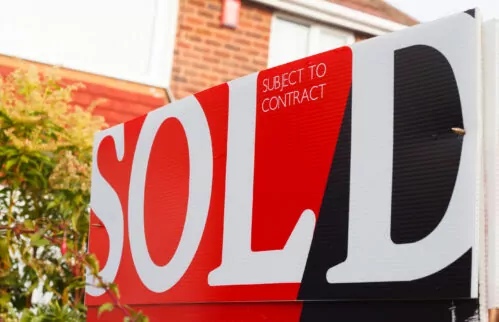Can I sell my house before going bankrupt

You are allowed to sell your house before going bankrupt. However, you can’t sell with the intention of protecting or giving away your share of any equity.
Included in this article:
- Are you allowed to sell your house before you go bankrupt?
- Can you use any funds raised to pay off debt?
- Can you give away any of the money you get from the sale?
Rather speak to person? Give us a call (0800 044 3194) or click here to complete the form below and we’ll call you
Are you allowed to sell your house before you go bankrupt?
You can sell your house before you go bankrupt. What you can’t do is sell and then give away or hide any equity you release from the sale to prevent the Official Receiver (OR) from getting their hands on it.
If you try and do this, the OR can take legal action to enforce the return of the funds. This is the case even if it was not your intention to hide any of your assets. You may not even have been considering going bankrupt at the time. The rules still apply.
You may have sold your property and put any funds released towards a deposit for your next house. If so, your new property is part of your assets and will be dealt with accordingly once you are bankrupt.
Selling below market value is not an option. You can’t sell your home for a knock down price and then claim no equity was released. Again, the OR could enforce the repayment of any equity you have effectively given away.
The rules discussed in this article apply to any property you have sold within 5 years of going bankrupt. You will have to disclose all such transactions on your application form.
Can you use any funds raised to pay off debt?
Using funds from the sale of your house to maintain pre existing monthly debt repayment arrangements is allowed. However, paying off one or more debts in full while leaving others outstanding can be a problem. It would be considered to be a preferential payment.
If you have paid a debt preferentially within 2 years of going bankrupt, the Official Receiver can demand that any funds you paid are returned to them. They can take court action against who ever has received the money to enforce this if necessary.
There will be no problem if you have paid off banks or other commercial organisations. If the OR believes these transactions were preferential, they can claim the money back from the bank. The bank will return the funds and the original debt will revert to being outstanding. However it will then be simply included in your bankruptcy and written off.
The issue is where you have paid off debt you owed to friends or family. If the Official Receiver writes to them demanding the return of the funds, it could get very uncomfortable for you, particularly if the money has already been spent.
Have you paid off friends or family members in the last two years? Call us to discuss your options before deciding whether bankruptcy is right for you (0800 044 3194).
Can you give away any of the money you get from selling your house?
After selling your house you may think about giving away some or all of the funds you release. For example you may want to help your children with a deposit to buy their own property. Alternatively you may simply give cash to a friend or family member to help them out.
This would be a problem if you subsequently want to go bankrupt. Giving away money within 5 years of going bankrupt is considered a transaction at undervalue. As such, the Official Receiver can demand the funds be returned by whomever received them.
This is the case whether you had the intention of hiding funds from the official receiver or not.
The only time when giving away the proceeds of a house sale would be allowed is if it is part of a Court agreed divorce settlement. If you sell a property and gave your share of any equity released to your ex to fulfil your divorce obligations, this is not normally a transaction at undervalue. You would have received some kind of consideration as part of the agreement. Perhaps no ongoing maintenance payments.
If you are considering going bankrupt but have sold a property in the last 5 years, you will need expert advice. Call us or complete the form below for a free, confidential discussion.